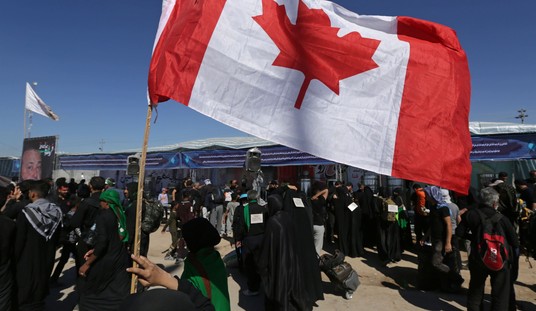“I don’t think we’re going to solve this problem in weeks,” President Barack Obama told reporters following the start of renewed airstrikes on Iraqi insurgents. “I think this is going to take some time.”
The president spent the majority of his address to the press noting that dramatic political reforms and a new government in Baghdad is the only permanent solution to the present crisis. In the absence of that political solution, however, American airpower must ensure that pro-Western elements in the Kurdish and Shiite areas of Iraq do not fall to the Sunni fundamentalist militia.
“In the absence of an Iraqi government, it is very hard to get a unified effort by Iraqis against ISIL,” Obama said. “We can conduct airstrikes, but ultimately there is not going to be an American military solution to this problem.”
The president’s admission echoes what his advisors had been telling reporters just hours after the president approved of airstrikes on Islamic State targets.
“Top advisors predict a long, very long military campaign,” CBS reporter Major Garrett revealed on Friday. “This is an army, and it takes an army to defeat an army,” U.S. chief of the Office of Security and Cooperation-Iraq, Army Lt. Gen. Mick Bednarek, agreed.
For now, some of the most strident anti-war voices of the Bush-era, many of whom were propelled to office as a result of their opposition to the Iraq War, are behind the airstrikes. But their support is qualified, and the longer this operation continues the more pressure they will face from their constituencies to oppose this latest round of American military operations in Iraq.
“Like many Americans, I am wary of mission creep and the possibility of being further embroiled in a situation that has no military solution; any American military intervention in Iraq should be limited in scope and duration,” a statement from Rep. Keith Ellison, the co-chair of the House Progressive Caucus and the nation’s first Muslim-American elected to Congress amid a wave of anti-Iraq War sentiment in 2006, read.
“Moreover, nations with the power to act have a responsibility to protect those who cannot protect themselves, and American involvement in Iraq should involve the international community,” Ellison’s statement continued, taking on a skeptical tone.
“If military operations in Iraq continue, the President should seek Congressional authorization for further engagement. Congress has made it clear that the President does not have unlimited authority for military action.”
Sen. Elizabeth Warren, who never had to cast a vote for military operations in Iraq but nevertheless represents the Democratic Party’s progressive wing today, also expressed tentative support for Obama’s mission in Iraq.
“If military operations in Iraq continue, the President should seek Congressional authorization for further engagement. Congress has made it clear that the President does not have unlimited authority for military action,” Warren said to reporters. “But like the president I believe that any solution in Iraq is going to be a negotiated solution, not a military solution. We do not want to be pulled into another war in Iraq.”
“Certainly these airstrikes are going to change the mix of what’s going on, so we’ll just have to monitor it literally day by day, hour by hour,” she added in her uninspiring endorsement of airstrikes on ISIS positions.
“The point is there has to be a negotiated solution in Iraq, but we don’t negotiate with terrorists,” Warren said. She said, “This is partially a question of whether the U.S. government negotiates or whether we have the Iraqi government doing these negotiations, and how we help support them as they try to maintain an integrated country, and a country that better represents all of the people who live there.
…
“I am concerned that none of us want to be pulled into a war in Iraq. I think that’s clear across this country, and I feel very strongly about that,” Warren said.
For now, the humanitarian nature of the crisis in Iraq has pacified the reflexively anti-war left. However, some in the grassroots are already grumbling about America’s unilateral role in Iraq.
“Many have been saying that, if this is truly humanitarian, response should be multilateral and not just the U.S. responding unilaterally,” one progressive organizer who protested the potential for new strikes in Iraq in June told BuzzFeed. “If it’s genocide, it’s a global responsibility to act, not just a U.S. one.”
These progressives’ patience will be tested as American military action in Iraq continues.
A political time bomb has been set by President Obama’s decision to reengage militarily in Iraq. There is no telling when it will go off, but every progressive politician – including the president – has signaled their awareness of the fact that this operation has the political potential to disrupt the Democratic coalition.
The operational calculation is, however, entirely different. American officials, military personnel, administration officials and the president himself have also noted that this mission cannot be a short one. If a strategic objective is to be achieved, American airstrikes in coordination with allies on the ground will have to continue for some time.
So, what happens when America’s political goals and strategic objectives in Iraq are in direct conflict with one another? This condition swamped the Republican Party in the last decade. While Democrats benefited greatly the last time this dynamic dominated the American political scene, it spells trouble for the party this time around.








Join the conversation as a VIP Member